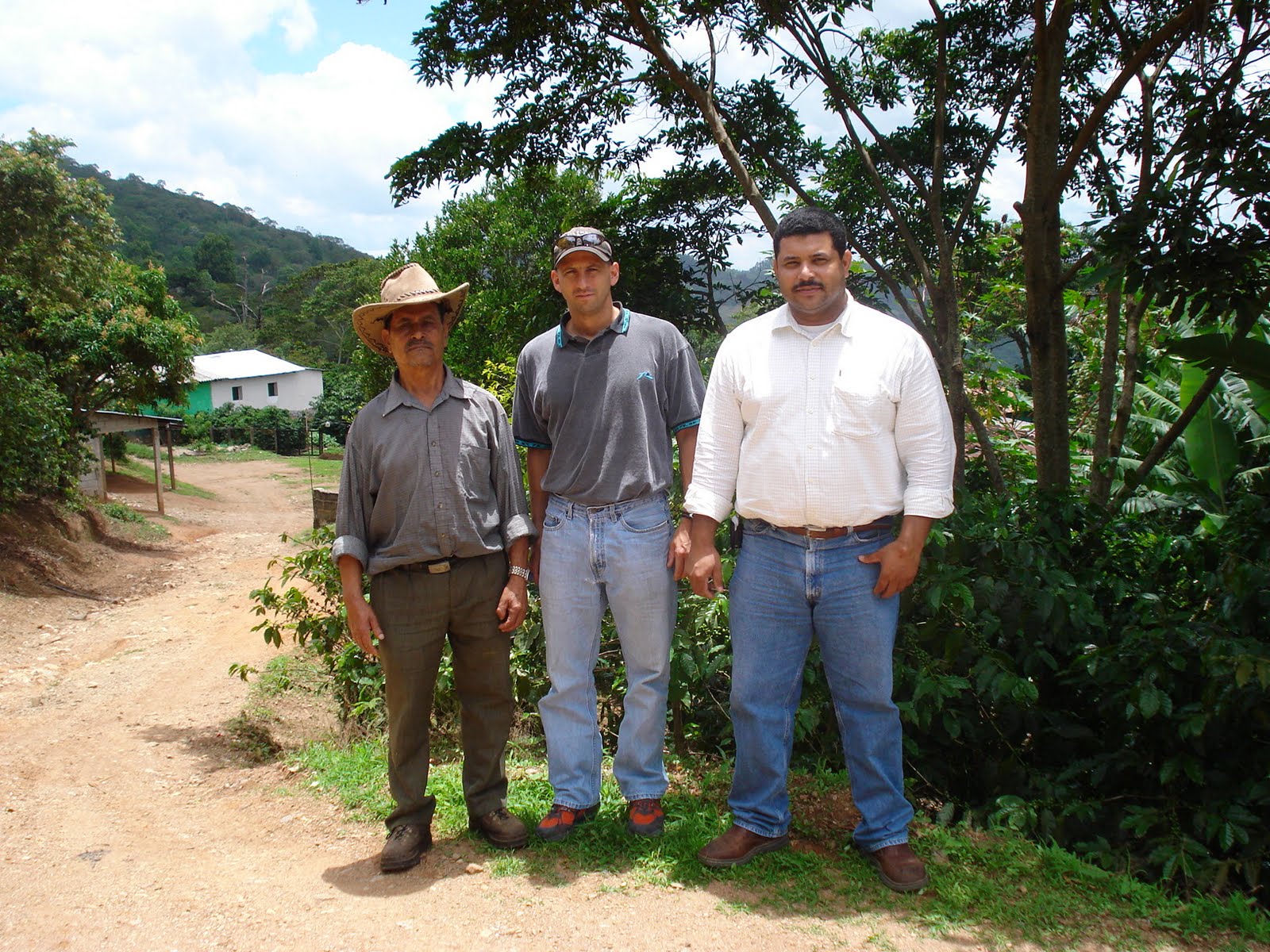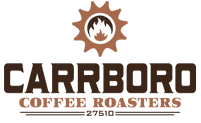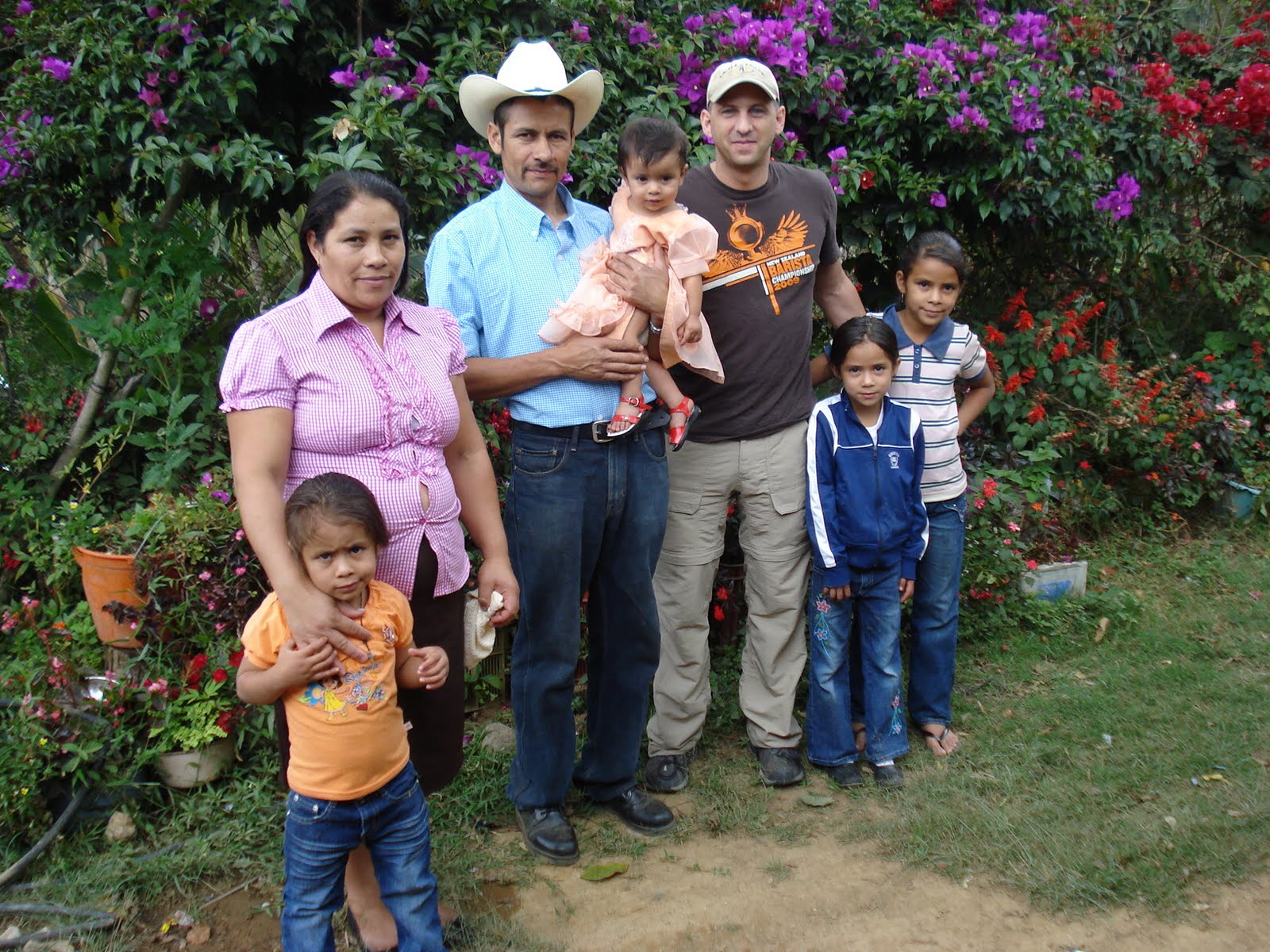Carrboro Coffee Roasters has one coffee tree in Carrboro, NC – you can find it in the sunlit window at the Open Eye Café. It may yield a few beans in a few years, maybe enough for one shot of espresso. This point highlights the fact that in the continental United States, coffee can’t be a local product. It passes through many, many hands before reaching the barista in the U.S., and some knowledge of coffee’s origins is potentially lost at each point along a complicated supply chain.
Carrboro Coffee Roasters support Fair Trade coffee because the certification helps guarantee that farmers receive a fair price for their crop. No certification, however, can replace the experience of traveling to ‘origin’, and working directly with a farmer to ensure that all is as it should be. This is the coffee equivalent of the local food movement. By meeting with farmers, an economic relationship can become a meaningful personal partnership of farmer, roaster, barista and customer. It is here that the true impact of this business reveals itself…the families who grow this treasured bean are impacted directly by what we do…Hence, “relationship coffee.”

In March & May 2010, Carrboro Coffee Roaster President, Scott Conary traveled to Honduras to meet the families who grow, pick, sort and ship the coffees that we serve to our customers every day. Scott’s goal is always to develop professional and personal relationships with these farmers based on a shared commitment to high quality artisan coffee, and to study coffee as an agricultural product, as a crop subject to seasonality and intimately tied to the land.
In the mountainous Ocotepeque region of Honduras, Scott stopped in to visit with Saul Melara, whose aptly named PinaBetal (tall pine) farm is 1600 meters (~5,250 feet) above sea level. Carrboro Coffee Roasters, found and purchased Saul’s exceptional coffee through the Cup of Excellence program. Growing award-winning coffee requires paying attention to every detail of the process, including regular pruning and crop rotation. And nothing goes to waste: even the coffee fruit, once washed free from the bean, is composted and used for fertilizer.
In the Santa Barbara Region of Honduras (up from the Comayagua Valley), Scott visited El Aguacate, Tomas Sosa’s Family farm, where has observed firsthand the intricate process of picking coffee cherries.
Because cherries ripen at different times, pickers must pass by each coffee tree many times, meticulously selecting only the ripe ones each time. All this before the coffee is milled, washed and dried, producing the green coffee beans to be roasted.
Anyone who visits the origin of coffee returns home with an appreciation for the delicate, labor-intensive process of coffee production: the journey of “seed to cup.”
Now, Scott’s task is to tell this story to whoever will listen. For many customers, knowing the source of coffee can offer a more meaningful experience, a daily level of engagement normally reserved for artisan cheese or wine, but equally as important. The folks at Carrboro Coffee Roasters, and the clients who buy their coffee, are proud to be working with this model of relationship coffee, where the customer can actually be introduced to the farmer!

